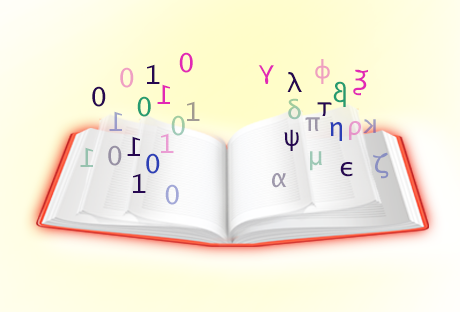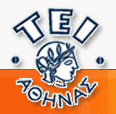JavaScript is disabled for your browser. Some features of this site may not work without it.
| dc.contributor.author | Κάκουρος, Ευθύμιος | el |
| dc.contributor.author | Μανιαδάκη, Κατερίνα | el |
| dc.date.accessioned | 2015-04-26T15:58:44Z | |
| dc.date.issued | 2015-04-26 | |
| dc.identifier.uri | http://hdl.handle.net/11400/8995 | |
| dc.rights | Αναφορά Δημιουργού-Μη Εμπορική Χρήση-Όχι Παράγωγα Έργα 3.0 Ηνωμένες Πολιτείες | * |
| dc.rights.uri | http://creativecommons.org/licenses/by-nc-nd/3.0/us/ | * |
| dc.source | http://www.arsi.gr | en |
| dc.subject | Υπέρβαρα παιδιά | |
| dc.subject | Διατροφή | |
| dc.subject | Παιδική ψυχοπαθολογία | |
| dc.subject | Overweight children | |
| dc.subject | Child psychopathology | |
| dc.title | Childhood obesity and its relationship with maternal perceptions and familial practices about nutrition | en |
| heal.type | conferenceItem | |
| heal.classification | Medicine | |
| heal.classification | Obesity in children | |
| heal.classification | Ιατρική | |
| heal.classification | Παχυσαρκία στα παιδιά | |
| heal.classificationURI | http://id.loc.gov/authorities/subjects/sh00006614 | |
| heal.classificationURI | http://id.loc.gov/authorities/subjects/sh85093649 | |
| heal.classificationURI | **N/A**-Ιατρική | |
| heal.classificationURI | **N/A**-Παχυσαρκία στα παιδιά | |
| heal.keywordURI | http://id.loc.gov/authorities/subjects/sh95008387 | |
| heal.keywordURI | http://id.loc.gov/authorities/subjects/sh85023384 | |
| heal.dateAvailable | 10000-01-01 | |
| heal.language | en | |
| heal.access | forever | |
| heal.publicationDate | 2001-08-19 | |
| heal.bibliographicCitation | Kakouros, E. & Maniadaki, K. (2001) Childhood obesity and its relationship with maternal perceptions and familial practices about nutrition. In 20th International Human Science Research Conference, Book of Abstracts. 19th-22nd August 2001. Tokyo, p.46 | en |
| heal.abstract | The prevalence of childhood obesity among pre-schoolers is estimated between 5-10% and seems to rise as children grow older (Woolston & Forsyth, 1989). Although it is not considered as a disorder itself, childhood obesity is a complex situation, related to a great number of health and psychological problems. The present study was conducted in Cyprus and aimed to investigate the relationship between childhood obesity and parental perceptions and practices about nutrition. Our sample comprised 388 children (mean age=59,37 months) and their mothers, recruited from the nursery schools of Nicosia and Paphos. All children have been weighed and measured and their Mass Body Index has been calculated. Afterwards, they have been categorised as normal, overweight and obese, according to the tables produced by Cole et al. (2000). Their mothers filled in a questionnaire exploring: a) their perception of their own, their husband's and their child's weight, b) their perceptions about the way children should be fed, and c) the familial practices concerning nutrition. The results indicated that 17.3% of the children was categorised as overweight and 9,1% as obese. A significant correlation was found between the child's weight and their mother's perception about it (rs=.324, p<.01). However, mothers of obese and overweight children seemed to have unrealistic perceptions of their child's weight since only 14,76% of these mothers suggested that their child weighs more than normal. Moreover, 25,4% of the mothers of overweight children would like their child to eat more, and 46,9% of the mothers of the whole sample believed that their child would eat less than normal if he/she was left alone to control the quantity of food he/she needs. This maternal perception, combined with the amount of pressure exercised on the child in order to eat, was positively correlated to the child's weight (rs =.117, p<.05). Thus, it is suggested that mothers overestimate the quantity of food their children need. Implications of these beliefs with the appearance of childhood obesity are discussed. | en |
| heal.fullTextAvailability | false | |
| heal.conferenceName | 20th International Human Science Research Conference | en |
| heal.conferenceItemType | poster |
Αρχεία σε αυτό το τεκμήριο
| Αρχεία | Μέγεθος | Μορφότυπο | Προβολή |
|---|---|---|---|
|
Δεν υπάρχουν αρχεία που σχετίζονται με αυτό το τεκμήριο. |
|||
Οι παρακάτω άδειες σχετίζονται με αυτό το τεκμήριο:








